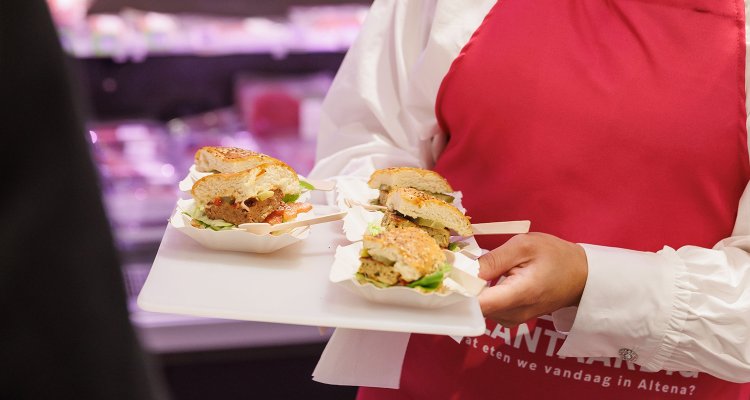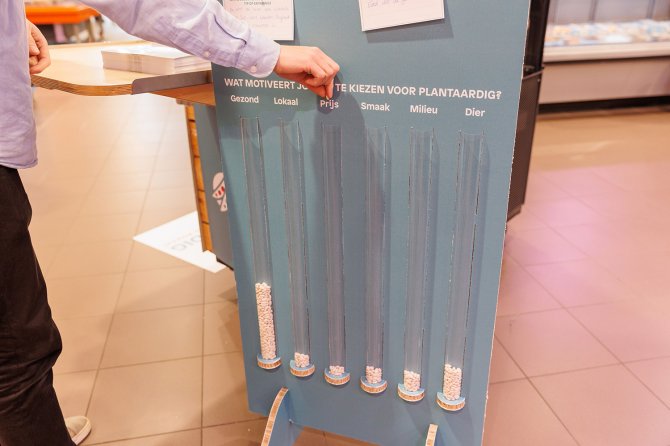
News
Pilot 'plant-based together' in municipality of Altena
A shift in our diet towards an increased proportion of plant-based proteins has benefits for individuals, animals and the planet. But such a change does not happen by itself. An area-based pilot in the municipality of Altena (Province of Noord-Brabant, The Netherlands) used a mix of interventions to investigate how residents can be encouraged to eat more plant-based foods.
Wageningen University & Research, together with the Green Protein Alliance (GPA), conducted an area-based pilot in the municipality of Altena to investigate how residents can be encouraged to eat more plant-based foods. Food choices are made in many different places. The researchers therefore conducted interventions at different locations in the food environment - the supermarket, the catering industry and in people's homes. Each of the interventions contained elements to boost three key conditions for behavior change: motivation, knowledge and skills, and an enabling environment.

Tastings in the supermarket
In the supermarket, a multi-component intervention was tested with the slogan "Plant-based together: What are we eating in Altena today?” This slogan emphasizes both the importance of joint efforts for more plant-based food and the local element. The intervention included tastings of plant-based dishes and a cooking demo. Customers were encouraged to vote and show their motivation for plant-based eating by throwing a dried bean in a tube of their choice, with labels such as animal welfare, environment or health as reasons for choosing plant-based options.

In addition, leaflets were distributed containing information and plant-based recipes, featuring personal motivations of local ambassadors, such as a local councilor and a top athlete from the area. In addition, a refrigerated display was filled with plant-based products that are available in the supermarket.
Increase offers in catering and school canteens
A survey revealed that a large group of residents felt there was little choice in plant-based dishes on menus of local restaurants. Local catering entrepreneurs and those responsible for school canteens were invited to an inspiration session. A number of participants indicated that they wanted to take concrete steps towards a more plant-based menu. One school, for example, reduced the number of days that sausage rolls were offered from two to one, and a cafeteria promoted plant-based sausages.
Motivating and enabling consumers
A group of 27 residents of Altena participated in six activities between April and July 2023. The activities included an inspiration evening where motivations for a more plant-based diet were discussed, a tasting bag was offered with plant-based products to try at home, and a supermarket safari was organized.
Conclusions
The effectiveness of interventions has been demonstrated in the supermarket context, and in consumers' homes, but more effort is needed to change the food offer in the out-of-home setting, a.o. in creating customer demand and increasing the availability of plant-based products at local wholesalers.
A questionnaire among residents shows that the combination of interventions in the food environment has not been sufficient to lead to changes at the area level. However, the interventions have shown positive effects in different environments. Therefore, we can conclude that although the reach has been too small to lead to changes at the level of the municipality, the interventions have shown promising results and should therefore be rolled out.
The key learning for other areas and municipalities is to deploy interventions that promote motivation, increase knowledge and skills, and stimulate an enabling food environment. Only the combination of these three elements proves effective in achieving dietary changes. In addition, efforts must be made to increase and make the plant-based offers in supermarkets, cafeteria and at wholesalers more attractive. To implement this type of intervention (on a large scale) in practice, it is important to connect with local ambassadors, to jointly stimulate the consumption of plant-based proteins at various locations in the food environment.